Zafar Adeel: A Conversation With the New Chair of UN-Water
Circle of Blue reporter Brett Walton spoke with Zafar Adeel, the new director of UN-Water, at World Water Day in Nairobi, Kenya.
J. Carl Ganter: Welcome to Circle of Blue Radio’s Series 5 in 15, where we’re asking global thought leaders 5 questions in 15 minutes, more or less. These are experts working in journalism, science, communication design, and water. I’m J. Carl Ganter.
Today’s program is underwritten by Traverse Internet Law, tech savvy lawyers, representing internet and technology companies.
In Nairobi recently at World Water Day, Circle of Blue reporter Brett Walton spoke with Zafar Adeel, the new director of UN-Water. UN-Water is the organization that coordinates the UN’s 26 member groups and their efforts to manage and improve fresh water and sanitation globally. Entering his second month on the job, Adeel spoke with Walton about his goals for UN-Water during his two year term, lessons from past decades, and the closely intertwined relationship between water and climate change.
The first question for you is what are your goals for your two year term as Director of UN-Water?
Well, it’s basically to deliver on the two key strategic directions that we have agreed upon. One is to bring water in the middle of the all the international dialogues which are going on, particularly related to the economic crisis and related to the Millennium Development Goals, and also the issue of climate change, which has gained a lot of significance over the years.
The point is that climate change is all about water, and we have to make that connection. That would be one goal for UN-Water, to make a significant input and influence into the ongoing dialogue on these larger global issues.
The second one is to set up mechanisms that will help the UN member states address their own challenges, build their capacities, provide them with policy inputs, and at the end of the day for the UN system to act together when they’re serving member states. As you probably know, a few years ago there was an initiative started which was called Delivering as One, for the member states. UN should be apparent as just one entity, not a conglomerate of various organizations and institutions working separately and sometimes delivering separate messages.
If we can use water as a medium to have a successful demonstration of Delivering as One for the UN system, that would be a good success for UN-Water.
“The point is that climate change is all about water, and we have to make that connection.”
The UN declared the 1980’s as the international decade for drinking water and sanitation. We’re on our second decade of dedication to drinking water and sanitation goals in coordination with the Millennium Development Goals. What has the UN learned from past mistakes and how is it approaching it differently this time?
I think one of the main things that we have not done before—and by we I mean the water community at large—was to define water in terms of human development, human well-being, and at the end of the day, part of the economic equation because these are kind of elements that politicians and decision makers understand. I think historically what we have done is stay focused specifically on water issues, water quality, on monitoring and doing research, but to relate it to people’s lives and to relate it to policies is something we have not done very well before.
I think looking at this decade, and we’re halfway through this decade which goes up to 2015, it appears that we’re making significant headway in refocusing our own way of looking at water. There are significant efforts ongoing to define water in terms of both the human costs and the economic factors and elements. I’m quite optimistic that we are now in a position where, when this decade ends, we will have achieved much more in terms of improving the lives of people, which is what it’s all about.
We are, as I said, halfway through the decade, and we will be meeting in Dushanbe in June of this year to particularly assess the success of this decade and also to chart out the course for the rest of this decade, for the next five years, to ensure that we actually do deliver on the kind of goals we have set for ourselves.
And one last question. Before the Copenhagen Climate Summit in December, UN-Water was very vocal about the need to include water in the negotiating text. Now the Accord has past, what is UN-Water doing to continue to promote water and climate change and how is UN-Water preparing for climate change refugees involving water?
Let me start with the bottom line, and that is climate change is all about water. What will affect societies is not that your temperature is two degrees higher or four degrees higher. But what will really affect people in their day-to-day lives is how the water cycle is affected, whether you get more extreme floods, whether you get extreme weather events, whether you have long term droughts, and that has also consequences for economic activities of just about every kind that you can think of.
So far, we can already see that climate change has actually brought those type of impacts. There are examples in Europe where so called 50-year floods are happening every two or three years, so our understanding of how the climate system interacts with the water cycle has significantly change, and we know that change is going to exacerbate. That was our starting point going in to Copenhagen, that when you talk about climate change, you have to talk about what’s happening to water. I think that message is now being well received, and I won’t comment on the success or otherwise of the Copenhagen negotiations, but the point is that people have realized that there is that connection.
What is also quite positive coming out from Copenhagen is that there has been allocation of resources for adaptation. Again, adaptation is where societies will prepare themselves for these kind of climate changes, again manifesting through what happens to their water cycle. The societies have grown to use water in a certain way, and when that water is not available or the quality is degraded, that can have very significant impacts.
For UN-Water, we are continuing our focus on that. We have a priority area that looks at climate change. In fact, we are now working on a policy brief which quantifies some of these connections, and we hope that this get audience from politicians, from decision makers, and they start to change some of their thinking in terms of how policies are formulated and how decisions are made. I’d say look forward to other things coming from UN-Water in the next few months which try to further consolidate the linkages between climate change and water and how we might respond to some of the challenges that present to us.
That was Circle of Blue’s reporter, Brett Walton, in Nairobi, where he’s been speaking with Zafar Adeel, the new Director of UN-Water. To find more articles and broadcasts on water design, policy and related issues, be sure to tune in to Circle of Blue online at CircleofBlue.org.
Our theme is composed by Nadev Kahn, and Circle of Blue Radio is underwritten by Traverse Legal, PLC, internet attorneys specializing in trademark infringement litigation, copyright infringement litigation, patent litigation and patent prosecution.
Join us again for Circle of Blue Radio’s 5 in 15. I’m J. Carl Ganter.
is a Washington, D.C–based correspondent for Circle of Blue. He graduated from DePauw University as a Media Fellow with a B.A. in Conflict Studies. He co-writes The Stream, a daily summary of global water news.

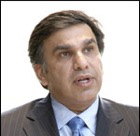

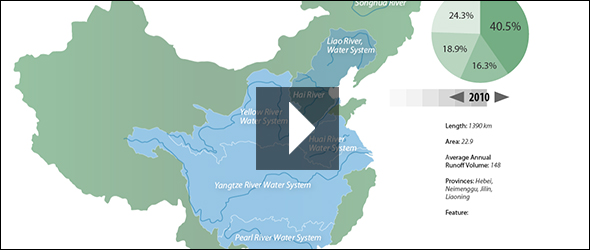
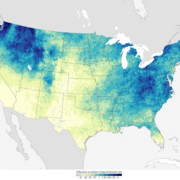
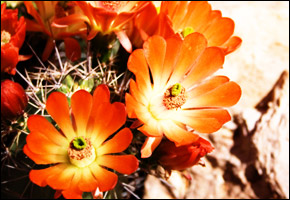



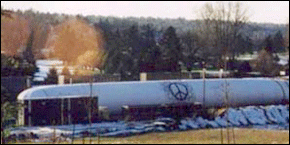
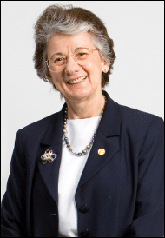
When it come to these water discussions, organisations like Konia Water are always eager to discuss how we can be of assistance. For the past decade we have been developing technology that makes drinking water from the humidity in the atmosphere, Atmospheric water generators. Emergency services in Australia have finally taken the technology on board and we strongly believe this can benefit the rest of the world.
currently being developed is a self sustained trailer that has a 750ltr water tank, 200ltr fuel tank and is capable of generating anywhere north of 1000ltrs a day. this developments should certainly be utilised in these struggling regions.
We are always available for discussions when needed.
thank you
Valentine